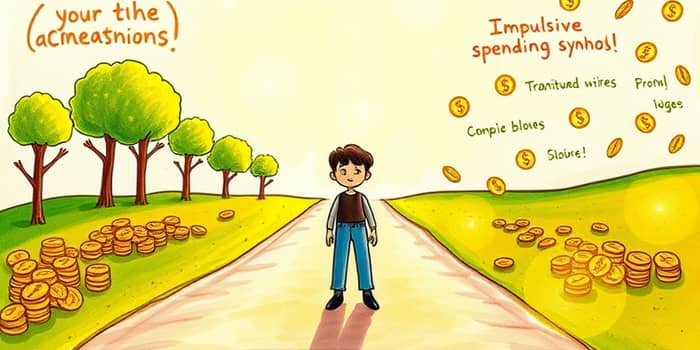
In the relentless pursuit of financial security and prosperity, we often focus solely on numbers, budgets, and strategies. Yet, a remarkably simple mindset shift—practicing gratitude—can transform not only our emotional well-being but also our financial outcomes. This article explores how cultivating a grateful heart can lead to smarter choices, greater resilience under stress, and a more generous spirit that compounds personal and social wealth.
At its core, gratitude is the practice of recognizing and appreciating the positives, even the small ones, in our lives and current situations. Psychologists define it as the capacity to notice and savor goodness, whether it comes from others, material comfort, or nature. Far from being a passive sentiment, gratitude is a dynamic mental habit that rewires our brain’s focus toward abundance rather than scarcity.
Research consistently shows that grateful individuals report higher life satisfaction, reduced anxiety and depression, and a more optimistic outlook. By fostering a mindset of thanksgiving, we lay the groundwork for every subsequent action—financial or otherwise—to be guided by clarity and calmness rather than fear and urgency.
How does gratitude translate into measurable financial behavior? Multiple experiments illustrate that people primed with gratitude demonstrate greater patience, better risk assessment, and more strategic long-term planning.
In a landmark study, participants given a gratitude prompt chose to wait for $80 in one month rather than take $54 immediately—showing pronounced self-control in monetary decisions. Another experiment found that highly grateful individuals were more resilient when faced with unfair offers, accepting smaller benefits without emotional turmoil and ultimately securing higher overall gains.
These findings reveal that gratitude enhances self-control and encourages decisions that prioritize future rewards over immediate, impulsive gains.
Financial anxiety is widespread: in 2022, 42% of Americans reported that money worries negatively affected their mental health. Chronic financial stress not only drains emotional energy but also impairs decision-making, leading to a vicious cycle of poor choices and deeper worry.
Gratitude interventions offer a powerful countermeasure. Meta-analyses involving over 1,800 participants show that regular gratitude practice boosts feelings of thankfulness by 3.67–5.7% and significantly improves life satisfaction. Such gains translate to calmer responses when budgets are tight, unexpected expenses arise, or market fluctuations occur.
By acknowledging what we already have—no matter how modest—we cultivate resilience in the face of setbacks, reducing the stress reaction that typically triggers panic spending or hasty, regretful loans.
Generosity and gratitude are deeply intertwined. Individuals who regularly express thanks are more likely to donate money, volunteer time, or support friends and family during financial hardship. Studies confirm that gratitude not only increases charitable giving but also strengthens social bonds, leading to reciprocal assistance in career and financial opportunities.
Expressing appreciation to a mentor, spouse, or colleague can open doors to mentorship, bonuses, or collaborative ventures. In effect, gratitude builds a network of goodwill that can prove invaluable during career transitions or investment pursuits.
Embracing a mindset of abundance rather than scarcity encourages us to see every interaction as an opportunity to give and receive support, creating a virtuous cycle of mutual prosperity.
Integrating gratitude into your daily financial routine need not be time-consuming. Here are proven strategies that can yield lasting benefits:
The power of gratitude extends far beyond polite manners. It is a scientifically validated tool that enhances mental health, empowers disciplined financial choices, and fosters generous social networks. By weaving simple gratitude practices into your daily life, you equip yourself with an unwavering foundation for wealth building that balances ambition with contentment.
Begin today: pause before your next financial move, acknowledge something you appreciate, and witness how this small act can set in motion compounding benefits for your wallet and your well-being.
References













